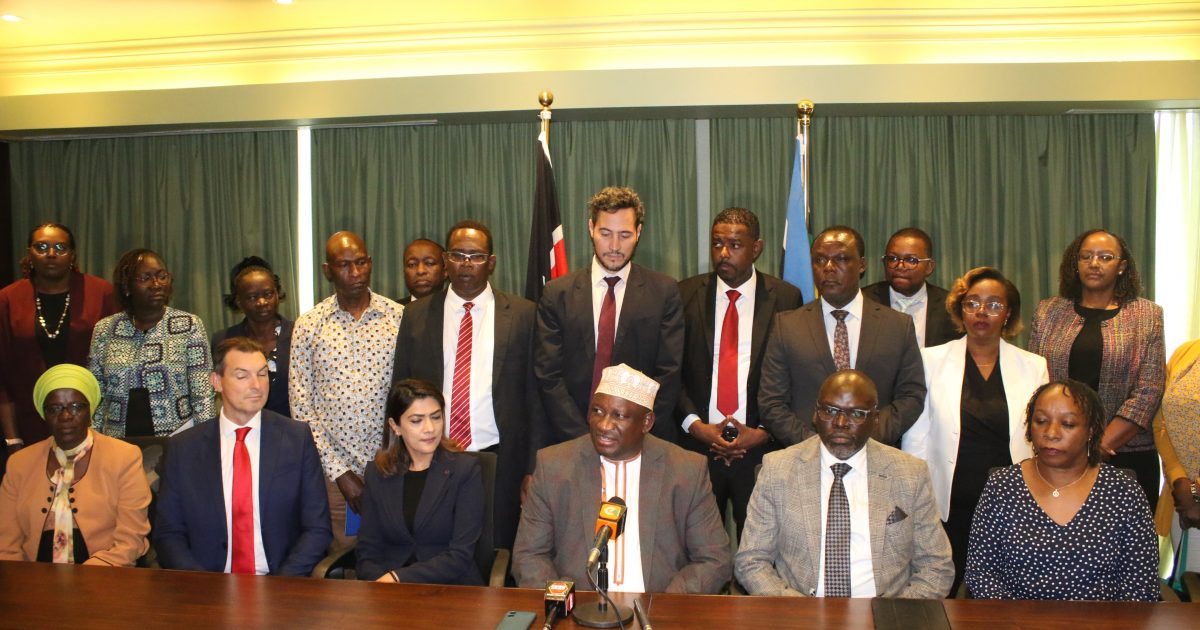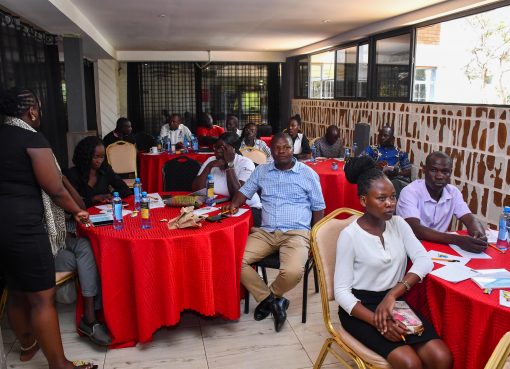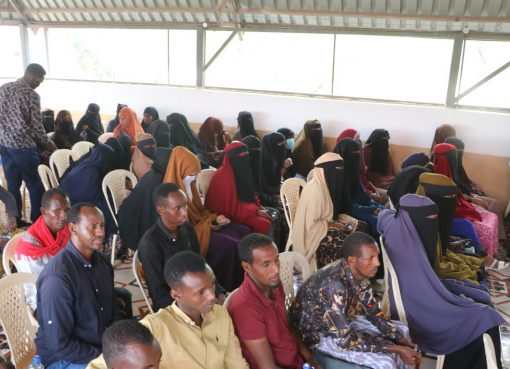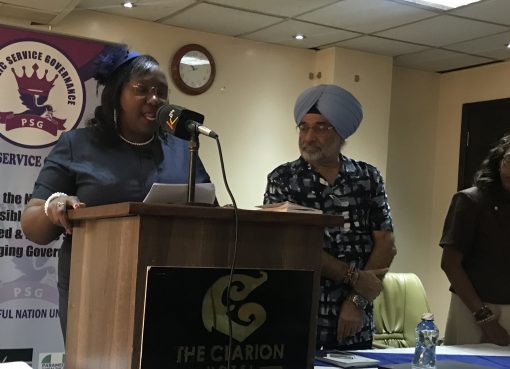The Cabinet Secretary for Investment, Trade and Industry Salim Mvurya has assured of the government’s commitment to implement legislative and policy reforms that address the challenges in trade and industry sector.
Mvurya said the policy reforms would address advance investments, trade and improve Kenya’s global competitiveness in manufacturing and business sector which is faced with a myriad of challenges.
“We need to address the challenges and put the sector on the right trajectory,” said the CS.
He said Kenya’s long term Vision 2030 which aims to transform the country into a middle-income economy has enabled the country to improve in both domestic and foreign trade through the promotion of structured commodity trading, identifying the unique needs of small traders, and creating market access through international trade agreements.
The CS was speaking during a Public Engagement on legislative and Policy Reforms consultative meeting for advancing investments, trade and industry in Kenya that was attended by stakeholders from both the public and private sectors at a Nairobi hotel.
During the meeting, stakeholders who included members of the public, traders, manufacturers, investors, experts, the private sector, civil society, professional bodies, academia, religious groups and other stakeholders submitted their proposals.
Mvurya said consultative meetings were important as they enabled the Ministry to gather information and proposals for the formulation and development of legislations and policies geared towards advancing consumer protection, investments, trade and manufacturing.
The areas that the stakeholders addressed included measures to attract, rationalization of incentives to boost manufacturing, measures to improve consumer protection and fair trade, measures to improve the performance of the export sector, foster structured commodity trade and ease costs associated with domestic trade.
Other covered areas included harmonization of taxes within the manufacturing sector to eliminate distortions and provide a stable and predictable taxation structure, putting in place measures to consistently assure the quality of manufactured products, ensure consumer protection, and fight counterfeits.
Mvurya who acknowledged the European Union, through Trade Mark Africa for facilitating the noble stakeholder engagement, noted the persistent burden in the costs and procedures for domestic trade.
“The consumer protection and fair trade still show significant gaps across sectors while the export performance in manufacturing is also struggling,” he stated, adding that in the past two years, the country has witnessed an increase in Foreign Direct Investments and Domestic Direct Investment.
The CS added, “The unpredictable taxation regime and high cost of power has contributed to the reduction in manufacturing Gross Domestic Product from 15 percent to 7.6 percent”.
He said some of the opinions and suggestions that have come through physical engagement and written submissions from stakeholders would take Kenya forward as they would address taxation, high cost of energy, illicit trade, counterfeit and contraband goods, harmonization of taxes and policies for manufacturing, limited export market and consumer protection measures.
Mvurya said the raised issues would be implemented in the short term, medium term and long term basis to ensure smooth implementation by categorizing the issues into legal, policy and administrative, while more categorization would also be done based on investment sector, industry sector and consumer protection.
He acknowledged the stakeholders for suggesting key recommendations to enable the ministry to realize the agenda in the sector, saying that the ministry would work on consolidation of inputs and prepare a business reforms action plan report with the agreed issues and implementation matrix to resolve the validated issues, before presenting them to Cabinet and Parliament for consideration.
“I intend to hold quarterly meetings not only to discuss challenges to be addressed but also opportunities to be unlocked related to investments, trade and industry,” he stated.
He expressed confidence that the structured engagements would position Kenya as a preferred investment destination and a gateway to the rest of Africa through the private sector, and reiterated the government efforts to make doing business more facilitative to business partners and investors.
By Sharon Atieno





